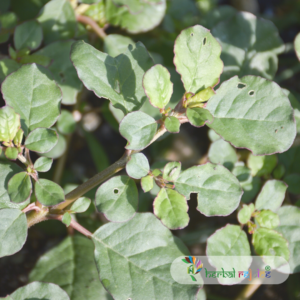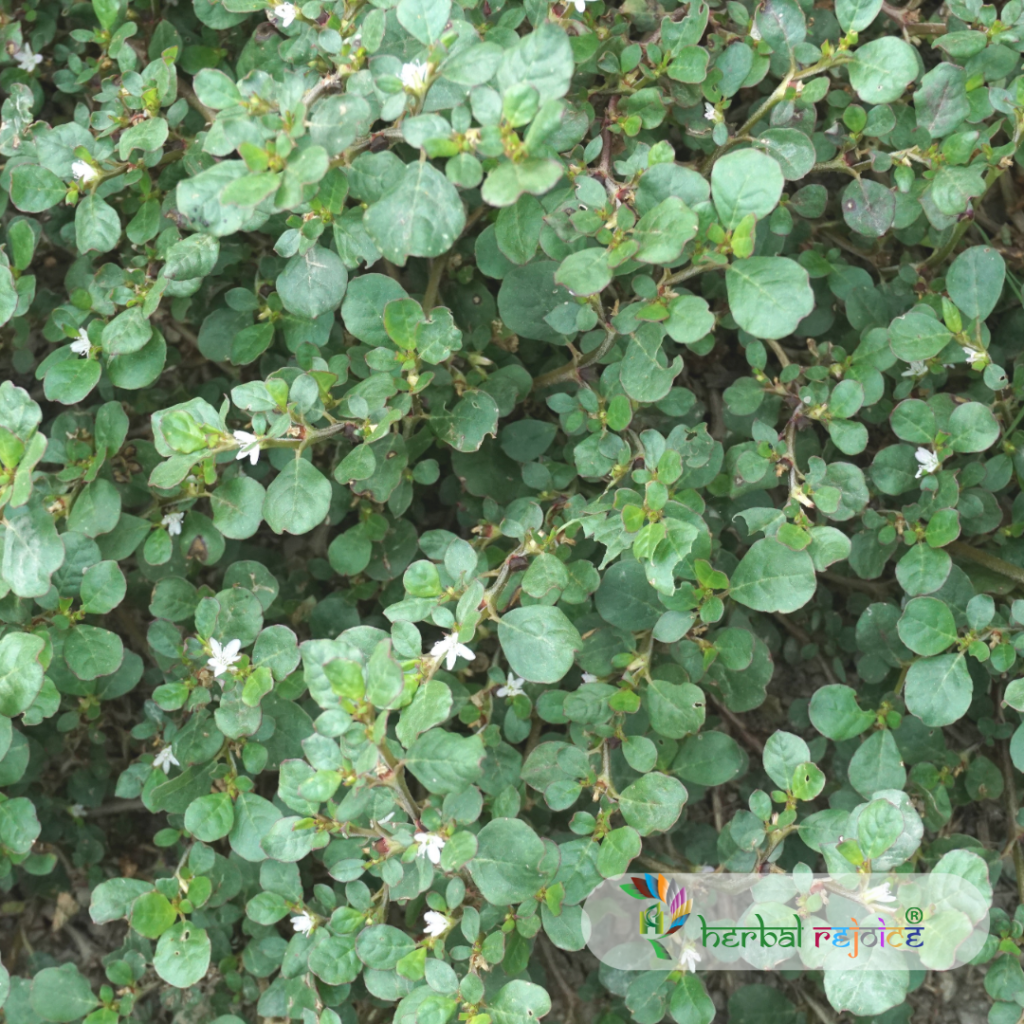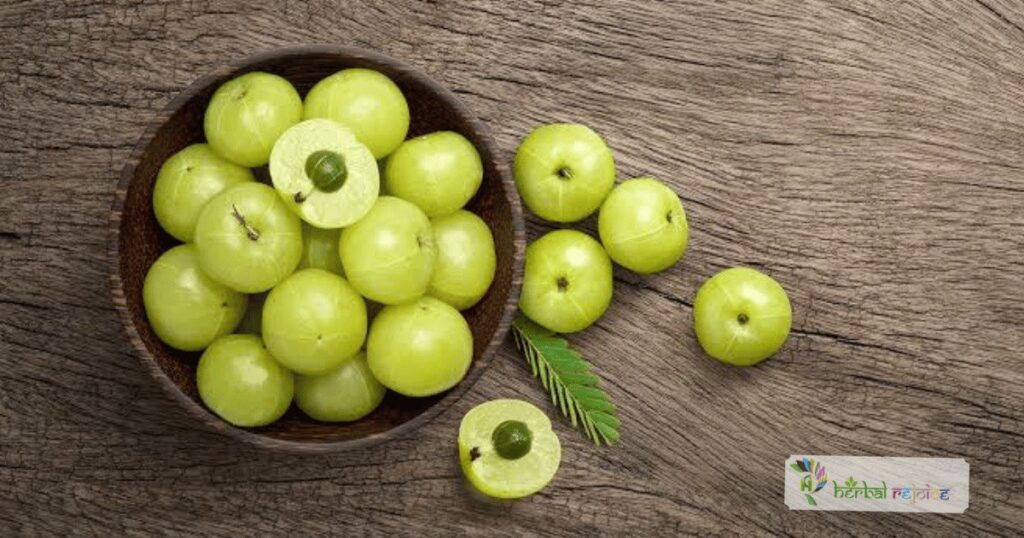Introduction:
Horse Purslane, scientifically known as Trianthema portulacastrum Linn., is a herb belonging to the Aizoaceae family. It is commonly found in cultivated fields and wastelands. In Ayurveda, it is known as Varshaabhu, Vrshchira, Vishakharparikaa, Shilaatikaa, Shothaghni, and Kshdra. Although it is sometimes incorrectly equated with Shveta-punarnavaa or Rakta-punarnavaa, it is important to note that Varshaabhu and Punarnavaa are two different herbs.
Traditional Uses:
Horse Purslane has been used in various traditional medicinal systems for its therapeutic properties. In Unani medicine, it is known as Biskhaparaa, and in Siddha medicine, it is called Sharunai. In folk medicine, it is referred to as Pathari and Bisakhaparaa. The root of this herb has been traditionally used for its antipyretic, analgesic, spasmolytic, deobstruent, cathartic, and anti-inflammatory properties. The leaves are diuretic and are commonly used in the treatment of edema and dropsy. Additionally, a decoction of the herb is used as an antidote to alcoholic poisoning.
Medicinal Properties:
The Ayurvedic Pharmacopoeia of India recognizes the dried root of Horse Purslane as an effective remedy for liver and spleen disorders, anemia, and edema. Furthermore, research has shown that the ethanolic extract of the aerial parts exhibits hepatoprotective activity in rats with CCl4-induced intoxication. This activity is attributed to the acetone-insoluble fraction of the extract. The red and white flowers of the plant contain an alkaloid called trianthemine, which is also referred to as punaranavine. Additionally, the plant has been found to contain ecdysterone, a potential chemosterilant, as well as nicotinic acid and ascorbic acid. It is worth mentioning that Horse Purslane is rich in phosphorus and iron but lacks calcium due to a high content of oxalate, which affects calcium assimilation. The presence of carotene has also been reported in this herb.

Adulteration Concerns:
It is important to be cautious when purchasing Horse Purslane or related products, as some unscrupulous sellers may mix it with the roots of Boerhavia diffusa as an adulterant.
Dosage:
For various health conditions, the recommended dosage of Horse Purslane root powder is 2-5 grams.
Conclusion
In conclusion, Horse Purslane (Trianthema portulacastrum Linn.) is a valuable medicinal herb known for its diverse therapeutic properties. From its traditional uses to its scientifically proven benefits, this herb offers a range of health benefits. However, it is advised to seek professional guidance and buy from trusted sources to avoid the risk of adulteration. Incorporating Horse Purslane into your wellness routine may provide relief from liver and spleen disorders, anemia, edema, and other health conditions.
Frequently Asked Questions
What is Horse Purslane?
Horse Purslane is a medicinal herb scientifically known as Trianthema portulacastrum Linn. It belongs to the Aizoaceae family and is commonly found in cultivated fields and wastelands.
What are the traditional uses of Horse Purslane?
Horse Purslane has been traditionally used for its antipyretic, analgesic, spasmolytic, deobstruent, cathartic, and anti-inflammatory properties. The root is known for its therapeutic benefits, while the leaves are diuretic and commonly used in the treatment of edema and dropsy.
How is Horse Purslane used in Ayurveda?
In Ayurveda, Horse Purslane is known as Varshaabhu, Vrshchira, Vishakharparikaa, Shilaatikaa, Shothaghni, and Kshdra. The dried root of the herb is recognized as an effective remedy for liver and spleen disorders, anemia, and edema.
What are the medicinal properties of Horse Purslane?
Horse Purslane exhibits hepatoprotective activity and has properties such as antipyretic, analgesic, spasmolytic, deobstruent, cathartic, and anti-inflammatory. It also contains alkaloids, ecdysterone, nicotinic acid, ascorbic acid, and carotene.
Can Horse Purslane be used for liver and spleen disorders?
Yes, according to the Ayurvedic Pharmacopoeia of India, the dried root of Horse Purslane is effective for liver and spleen disorders.
What are the potential benefits of Horse Purslane?
Horse Purslane offers potential benefits for liver and spleen disorders, anemia, edema, and other health conditions.
Is Horse Purslane recommended for alcoholic poisoning?
Yes, a decoction of the herb is used as an antidote to alcoholic poisoning.
How is Horse Purslane dosed?
The recommended dosage of Horse Purslane root powder is 2-5 grams for various health conditions.
Are there any concerns of adulteration with Horse Purslane?
Yes, it is important to be cautious when purchasing Horse Purslane or related products, as some sellers may mix it with the roots of Boerhavia diffusa as an adulterant.
What are the botanical names for Horse Purslane?
Horse Purslane is scientifically known as Trianthema portulacastrum Linn.
What are the traditional names for Horse Purslane in different medicinal systems?
In Unani medicine, Horse Purslane is known as Biskhaparaa, and in Siddha medicine, it is called Sharunai. In folk medicine, it is referred to as Pathari and Bisakhaparaa.
Are Varshaabhu and Punarnavaa the same herb?
No, Varshaabhu and Punarnavaa are two different herbs, although they are sometimes incorrectly equated with each other.
What are the properties of the aerial parts of Horse Purslane?
The ethanolic extract of the aerial parts of Horse Purslane exhibits hepatoprotective activity in rats with CCl4-induced intoxication. This activity is attributed to the acetone-insoluble fraction of the extract.
What alkaloids are found in Horse Purslane?
Horse Purslane contains an alkaloid called trianthemine, also known as punaranavine, which is present in the red and white flowers of the plant.
What nutrients are present in Horse Purslane?
Horse Purslane is rich in phosphorus and iron but lacks calcium due to a high content of oxalate. It also contains nicotinic acid and ascorbic acid.
Can Horse Purslane be used as a diuretic?
Yes, the leaves of Horse Purslane have diuretic properties and are commonly used in the treatment of edema and dropsy.
Can Horse Purslane be used as an antidote to alcoholic poisoning?
Yes, a decoction of Horse Purslane is used as an antidote to alcoholic poisoning.


